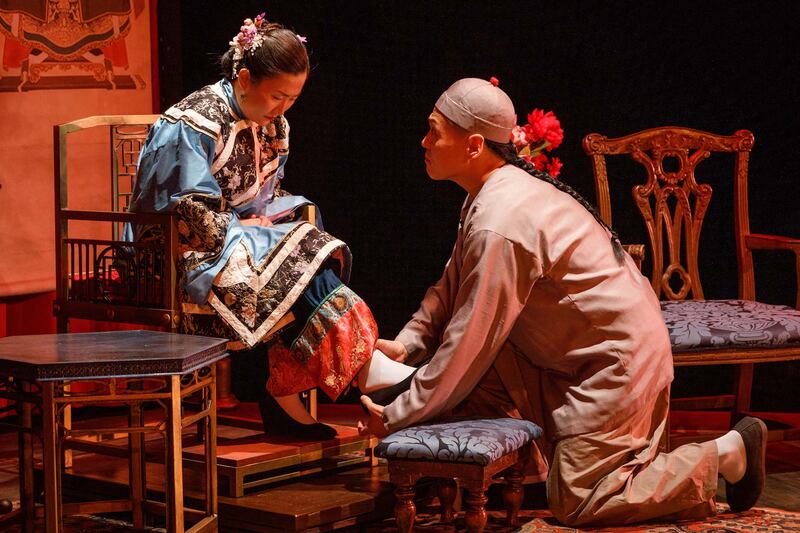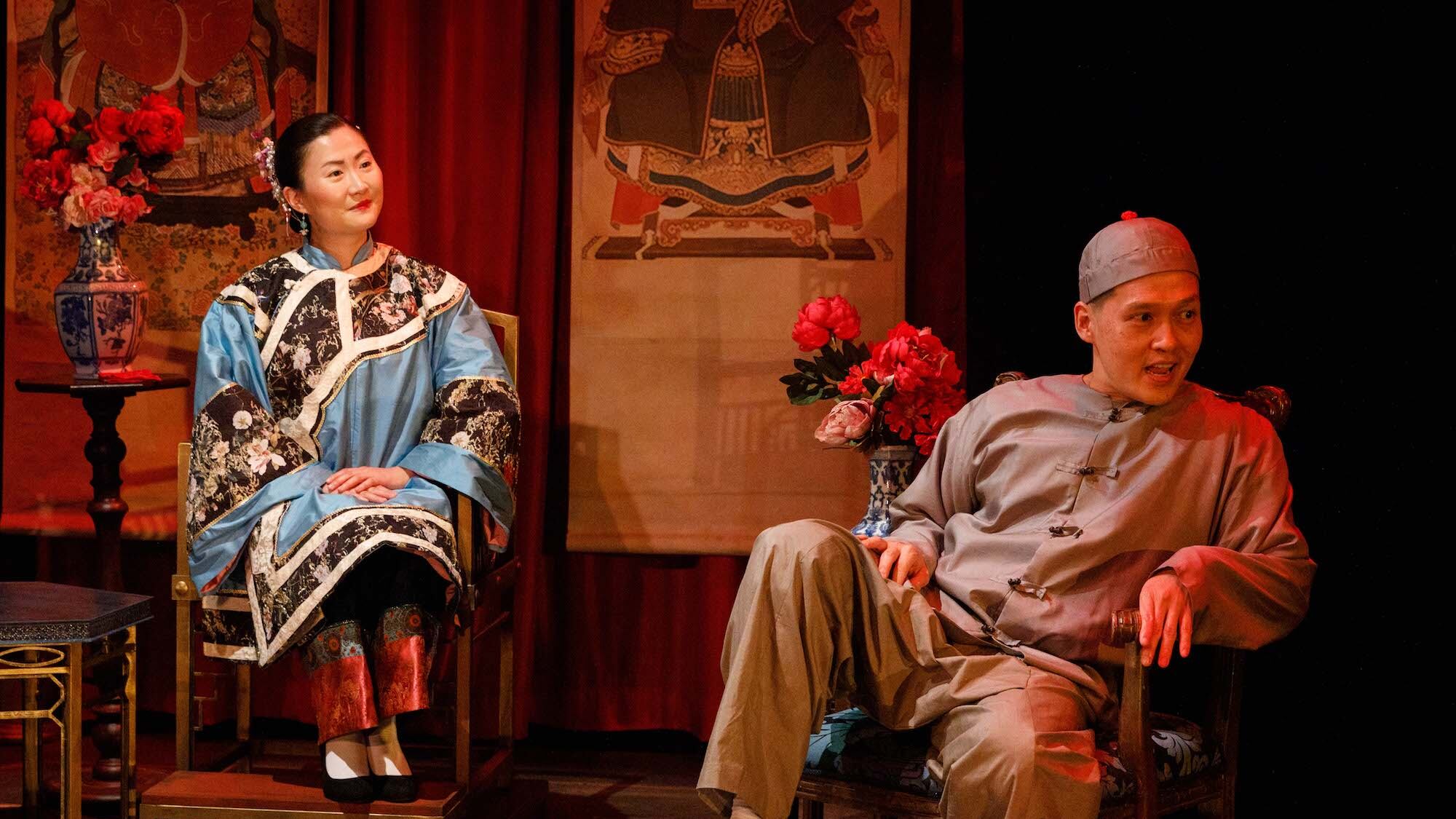The trajectory of Afong Moy’s life, both historically and as the protagonist of Lloyd Suh’s The Chinese Lady, is simple yet complex; bitter though unusually hopeful at the same time.
Just 14 years old at the play’s start, and played masterfully throughout by Barbie Wu, Afong is brought from China to America by merchants in 1834. Believed to be the first Chinese woman to set foot on U.S. soil, she is then put on display as a walking, talking billboard surrounded by chinoiserie decorative art. We then observe that the next half-century of her life becomes a performative ritual, as Afong magically ages in front of our eyes, until she eventually vanishes from the collective consciousness.
Exhibited for most of the play on a thronelike chair and draped in Chinese silks, Afong tells us of her life as an object of superficial curiosity. The paying customers (“twenty-five cents for adults!”) gawk at her clothing, her eating with chopsticks, her walking and—especially—her bound feet. Afong’s pasted-on smile and chirpy demeanor highlight the distance between the spectators and her own evolving sense of self as a sentient, curious and emotional person.
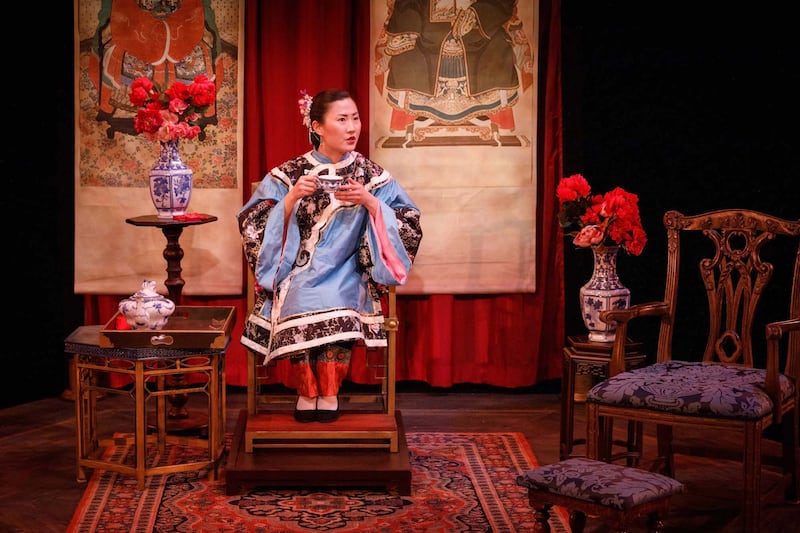
As the years pass, she is put on tour across the country, describing (in often preachy detail) that having been made an exotic zoo animal is another facet of the more brutal racism displayed via the trans-Atlantic slave trade and the Cherokee Trail of Tears. She also observes that certain American customs that constrain women, like squeezing torsos into whalebone corsets, aren’t necessarily that different from foot-binding.
The script’s didacticism is its main weakness. Playwright Suh has stuffed so many examples of global injustice, unsavory capitalism, and even the difficulties of translation into the script, the more delicate and complex aspects of Afong’s predicament would have had trouble emerging without Wu’s deft portrayal. She can become angry, wistful and disappointed with subtle facial expressions alone.
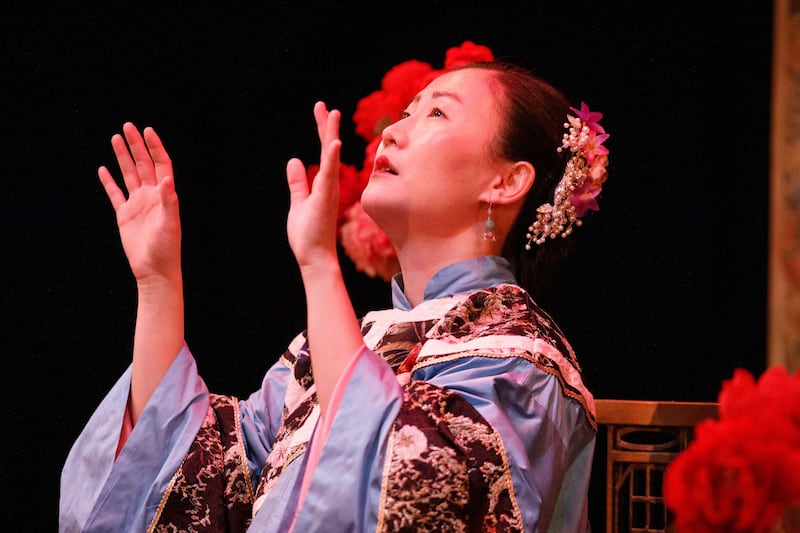
Joining her in a skilled performance is Bern Tan as Atung, Afong’s manservant and translator, who becomes an interlocutor during her explorations of the world and selfhood. But since Atung is mysteriously written without a past, Tan is given a more difficult task in trying to show us the character’s depth and inner conflict. That glaringly blank slate makes it difficult to understand his connection to Afong, and their relationship seems more businesslike than personal. We care about her, we are puzzled by him.
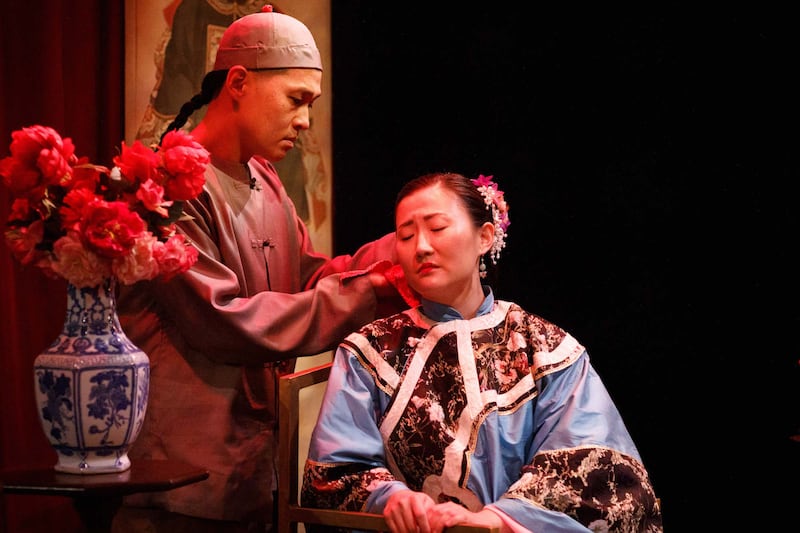
Despite the script’s flaws, the story ultimately gives way to greater emotional depth as we learn of Afong’s pain as she struggles with isolation as well as the loss of her roots and language. “I can’t remember my mother,” she notes ruefully. Nevertheless, time and age allow her to begin to construct some self-assurance and individuality.
The Chinese Woman opens Artists Repertory Theatre’s 2021-22 season after 20 dark months. Director Lava Alapai and executive artistic director Dámaso Rodríguez display the company’s typical courage in choosing this play in the wake of recent anti-Asian abuse from the highest levels of government.
It is not an easy play to stage. To some degree we are put in the position of Afong’s spectators, made aware of how our gaze must feel to others. Despite the discomfort that may present, you’ll become mesmerized by Wu’s skill in creating a layered, paradoxical and sometimes curiously optimistic Chinese character.
SEE IT: The Chinese Lady plays at the Armory’s Ellen Bye Studio, 128 NW 11th Ave., 503-241-9807, artistsrep.org. 11 am and 7:30 pm Wednesday, 7:30 pm Thursday-Saturday, 2 and 7:30 pm Sunday, through Nov. 14. $5-$35.
